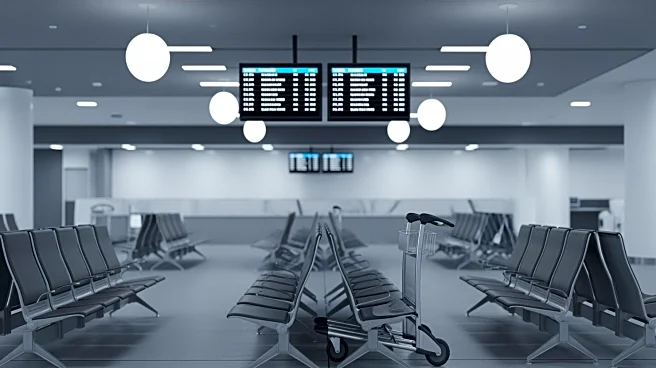What's Happening?
Airlines are increasingly charging passengers more while offering fewer services, a trend that has extended to hotels and cruise lines. This shift is attributed to consumers prioritizing low upfront prices,
which allows companies to add extra fees later. Despite initial outcry, such as when Southwest Airlines eliminated its 'bags fly free' policy, passengers continue to book with these companies, accepting additional charges for services like checked luggage. Experts suggest that years of conditioning and poor customer service have led consumers to believe that paying more for less is the industry standard. This trend is not limited to airlines; hotels and cruise lines also impose additional fees for services that were once standard.
Why It's Important?
The trend of paying more for less in the travel industry has significant implications for consumer rights and market dynamics. As companies continue to unbundle services and add hidden fees, consumers may face increased travel costs without corresponding improvements in service quality. This could lead to a decline in customer satisfaction and loyalty, potentially impacting the long-term profitability of travel companies. Moreover, the acceptance of this trend by consumers may encourage other industries to adopt similar practices, further eroding consumer rights and expectations. The situation underscores the need for greater transparency and consumer advocacy to ensure fair pricing and service standards.
What's Next?
To counter this trend, industry experts suggest that consumers need to demand greater transparency and reject the standard of nickel-and-diming. Travelers are encouraged to seek out companies with transparent pricing models and to be informed about their rights, especially regarding service reductions or cancellations. By choosing companies that offer better service and value, consumers can send a message to the industry about their expectations. Additionally, regulatory bodies may need to step in to ensure fair practices and protect consumer interests in the travel industry.










